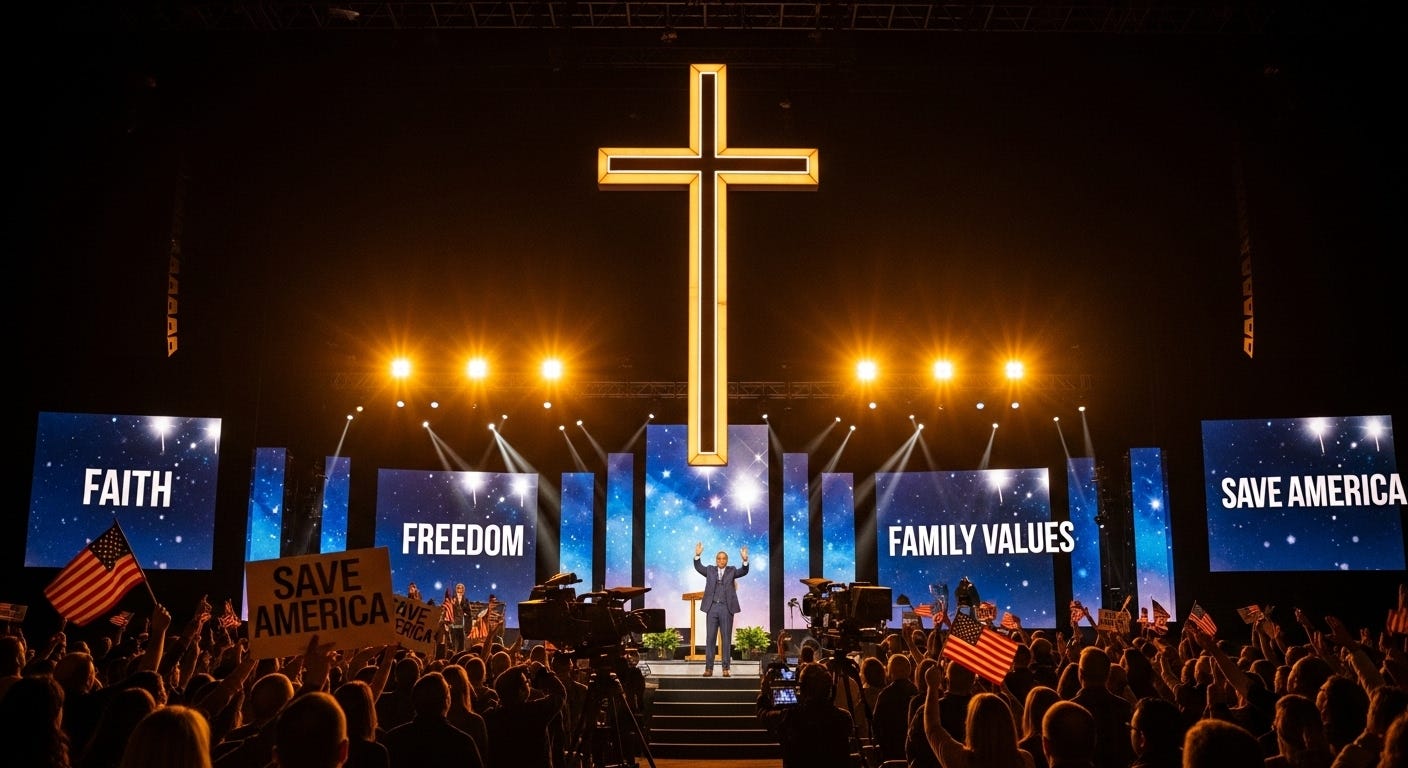How the Religious Right Built America’s Billion-Dollar Culture War Industry
They turned churches into campaign offices, morality into marketing, and outrage into a business that never stops cashing in.
For half a century, the Religious Right has been fighting an endless holy war — not for God, but for power, money, and control. They built a full-blown industry out of outrage, fear, and moral panic. Every sermon became a campaign speech. Every “crisis” became a fundraising drive. And every cultural change — women’s rights, civil rights, LGBTQ+ equality…



